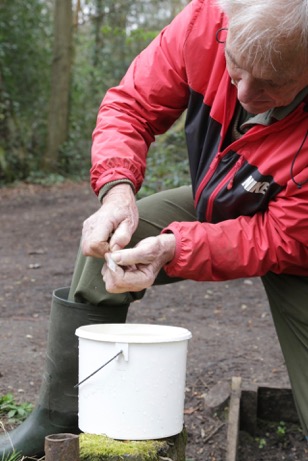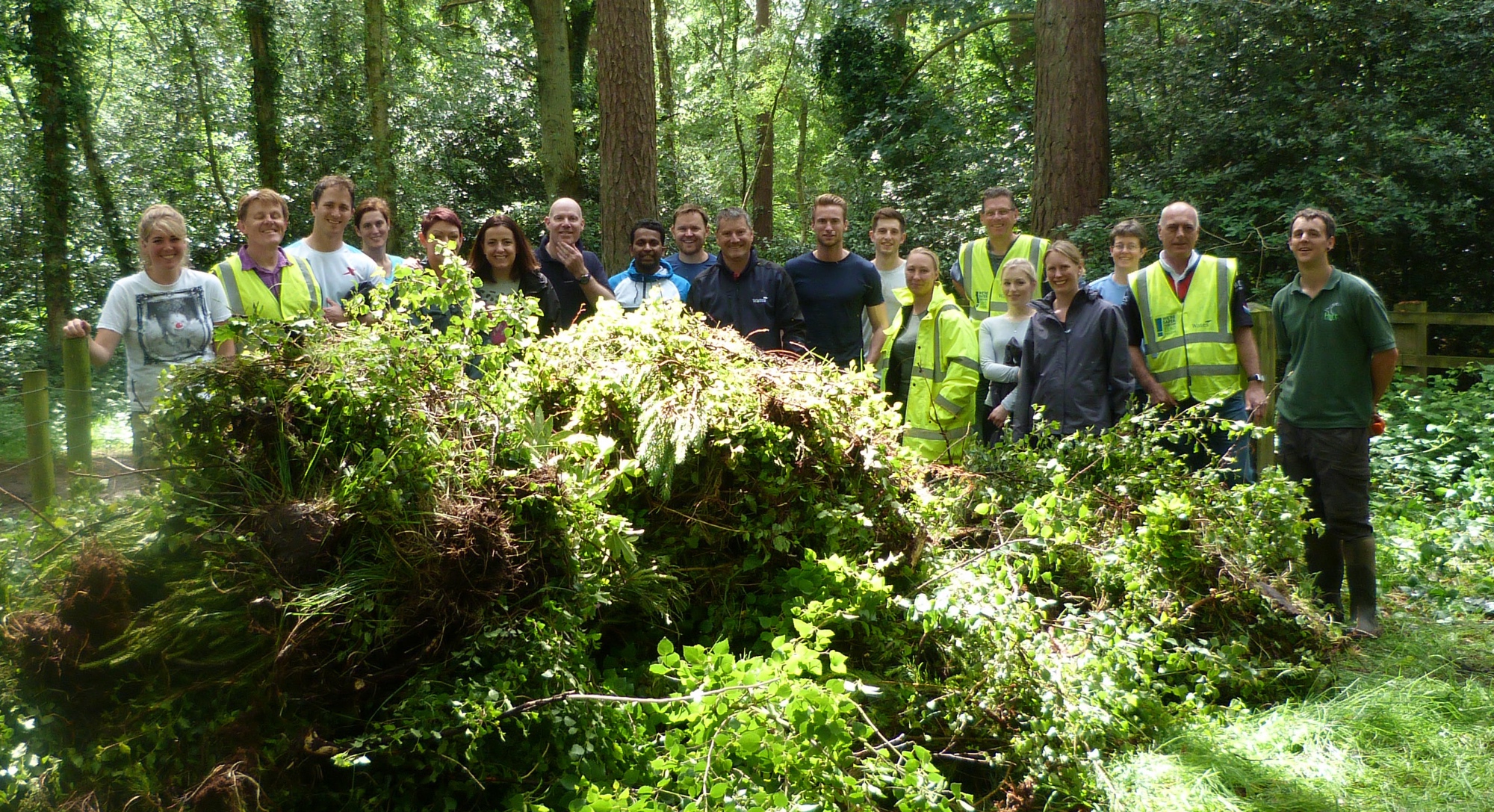Terry Austin of FPS taking and testing water samples at Fleet Pond
John Sutton, who previously worked for the EA (and is now a professional photographer), writes:
“Last year on 14th September, Wild Oxfordshire, the Freshwater Habitats Trust and Thames Water, amongst others launched what was probably the first ‘WaterBlitz’ across the River Thames catchment. The intention was to collect as many nitrate and phosphate measurements within a 24 hour period with the help of citizen scientists.
In all, 645 measurements were sampled by individual members of the public, school and community groups and experts alike! In keeping with citizen science this was far more than any single scientist or team of scientists could collect in a day. Find out more about the data through the FreshWater Watch Water Hub.
The benefit of collecting this amount of data within a 24 hour period is that you get a temporally comparable result whether you are on a small tributary of the Lea or on the Thames at Lechlade. At the same time, water quality differences between sites are less likely to represent seasonal or climatic changes that occur throughout the year.
Importantly, they are more likely to highlight underlying issues such as pollution sources. Aside from contributing to the wider FreshWater Watch initiative, data collected in this manner directly compliments regular monitoring carried out by the Centre for Ecology and Hydrology and could help elucidate particularly problematic still and flowing waters (taken from Dr Ian Thornhill’s blog, see here).
Members of Fleet Pond Society (FPS) took part in the April 2016 Water Blitz, sampling a series of waterbodies associated with Fleet Pond. The survey will be repeated in October 2016. See the results in the table below:
Click to enlarge (* measured in parts per million)
These values are expected to vary throughout the year as a result of weather patterns and changes in land use.
What are nitrates and why are they important?
Nitrate (NO3) is a form of nitrogen that is highly soluble in water. It is used in fertilisers and can move readily with surface runoff into rivers. Studies indicate that more than half of the nitrate fertilisers applied to fields can end up accumulating in the soil or running off into surface water and ground water. Other sources of excess nitrates can be traced to human wastes and industrial pollution.
Algae and other plants use nitrates as a source of food and elevated concentrations can create conditions that make it difficult for aquatic fauna, including fish and invertebrates, to survive. This occurs when large amounts of algae cause extreme fluctuations in dissolved oxygen. Photosynthesis by algae and other plants can generate oxygen during the day. However, at night, dissolved oxygen may decrease to dangerously low levels as a result of oxygen consuming bacteria feeding on dead or decaying algae and other plants.
Why is phosphate important?
Phosphates (PO4) can enter aquatic environments from the natural weathering of rocks, from the decomposition of plants, or from human activity such as fertilizer runoff and improperly treated waste-water. Phosphorus is an essential element for plant life, but in high concentrations favours the excessive growth of algae, with negative impacts on the fish and the health of our rivers and lakes.
The input of phosphorus from sewage treatment works to rivers is relatively constant through the year while agricultural inputs are much more closely linked to rainfall events and more seasonal. Efforts to reduce phosphorus coming from wastewater-treatment facilities and the use of phosphorus detergents has led to reductions in phosphate concentrations in European waterbodies, but 45% of rivers in England fail the EU Water Framework Directive for phosphorus standards.”
Ed. Many thanks to John for setting up the project and for providing the illuminating article. You can see his current work here (including some nature photography).
For completeness, here’s a nice video on the Water Blitz project showing how children can get involved as part of citizen science:
[youtube https://www.youtube.com/watch?v=fLClFGvyKvo&w=560&h=315]






